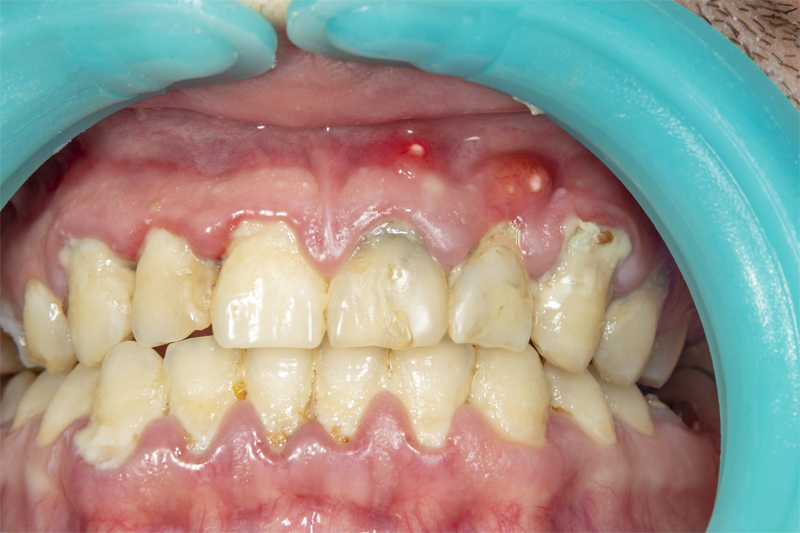
While some people are born predisposed to having health problems associated with bad dental hygiene, this is just not true for everyone. It’s said that a child who starts taking regular dental care is less likely to suffer from a dental condition in adulthood.
Most people develop gum disease through poor oral care, including a lack of regular visits to the dentist. Although you may spend on oral healthcare costs, it’ll be worth it to prevent any serious disease from developing due to poor oral hygiene.
The result of gum diseases can also negatively impact your health. Some agree that poor dental care may result in the development of certain types of illness. Others claim that poor oral care can be unhealthy and cause life-threatening diseases such as the following:
1. Diabetes
There are many things that poor dental hygiene can do to your health, and one of the most dangerous one is causing or aggravating diabetes. It’s been known for many years that poor dental hygiene can make diabetes worse.
Poor dental practice will likely increase the risk of developing diabetes mellitus. The reason for this is that your mouth will be more exposed to bacteria. These bacteria will feed off of carbohydrates in your food and cause many health problems. If you’re diabetic, your body’s insulin production levels are lower than normal, and this makes your cells more susceptible to damage caused by these bacteria.
As mentioned, poor dental practices can lead to diabetes because the body doesn’t have enough insulin to use. One of the ways poor dental care affects diabetes is that it can cause blood sugar levels to increase significantly. Diabetes can also cause the body not to absorb glucose from food properly, which leads to too much accumulation of sugar in the bloodstream.
Diabetes is a severe disease that causes damage to the cells in the body. People who have diabetes cannot properly metabolize the sugar they eat, and this can lead to complications like high blood pressure, kidney failure, heart attack, and stroke. When you’re suffering from these complications, it can be very difficult to maintain good health. It’s imperative to have proper oral hygiene to avoid worsening or developing diabetes.
2. Cardiovascular Disease
The debate about poor dental care and cardiovascular health is not new. Many doctors and researchers have studied this question, and the results are consistent. There’s a significant connection between poor oral hygiene and heart disease. Many experts believe that poor oral hygiene leads to a buildup of plaque and tartar in your mouth, which can result in cardiovascular diseases. It has also been seen that if you have gum disease or periodontal disease, then you have a greater chance of having heart disease.
People who suffer from heart disease have often had a history of poor dental hygiene. For instance, individuals who live in areas where tobacco is a part of daily life are more likely to suffer from mouth diseases than those who don’t smoke tobacco. Also, people who drink alcohol at high levels have an increased risk for developing periodontal diseases. Poor oral hygiene, in many ways, may lead to many other health-related problems.
How Oral Diseases Are Developed
Many factors can contribute to the development of gum disease, but the most common is the buildup of plaque. As time goes on, your gums’ natural coating begins to wear off, and the bacteria that usually lives there takes over. Over time, this may lead to more severe diseases, as mentioned above.
Other oral problems that are often brought on by gum disease are tooth decay and cavities. Both of these issues can cause your gums to bleed, become irritated, or to feel as if they’re being chewed away. Both conditions are embarrassing and painful yet many people don’t seek treatment, which in the long run will cause serious health problems.
Although gum disease is not contagious, it can negatively impact your overall health. That’s why you should take care of your teeth by brushing and flossing, as there are times that the bacteria that cause gum disease may get onto your teeth and leave marks that can be difficult to remove.
If you seek dental treatment, there are various treatments for tooth decay. When they do work, they can take care of both the tooth decay and the bacteria living on your gums.
The bacteria that cause gum disease is present in many kinds of food. While it’s essential to watch what you eat and drink, you should also brush and floss regularly, especially after every meal and snack. Brushing your gums every day will help prevent the buildup of plaque on your teeth and promote healthier gums.
Gum disease may weaken the walls of the heart arteries and increase the risks of heart attacks and strokes. In addition, the blood flow to the heart is affected by plaque, as well as the way your heart pumps. Your heart rate is also affected, making it easier for the bacteria to travel to your bloodstream and infect it.
Conclusion
Gum disease can also impact on other health problems, so it’s best to practice good oral hygiene as early as possible. When you care for your teeth, you can prevent plaque buildup which is one of the main reasons gum disease develops. As part of your dental hygiene, you should regularly visit your dentist as well. That way, he can check if you’re developing gum disease and take measures to prevent it from worsening.
Comments
comments